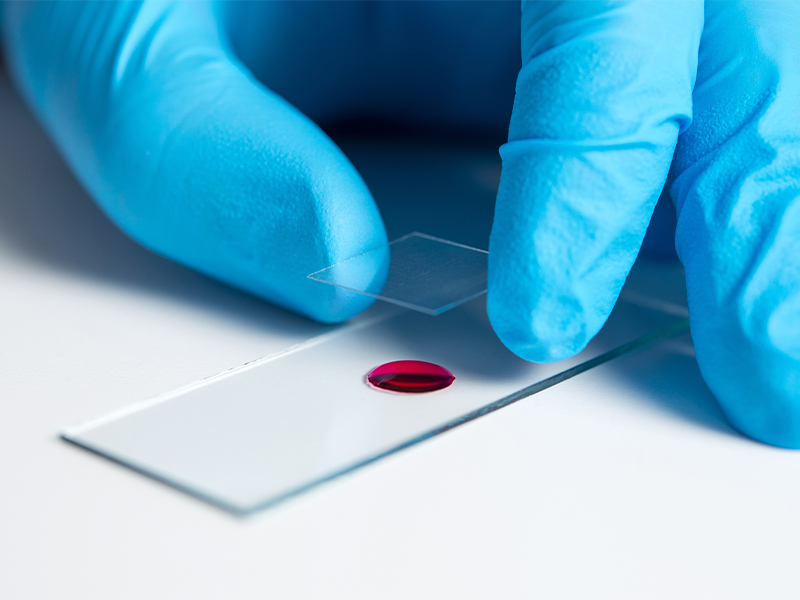Things you’ll learn in this blog: |
You’ve probably heard that you need to “eat less and move” more to lose weight. And for the most part, that is true, but for Women, it can be a little trickier than that.
You’ve got hormones that change and fluctuate throughout your lifetime and even the month, which can impact weight loss and gain.
These hormones can become particularly challenging as you age - but they can affect you at any stage.
If you suspect that your hormones are playing havoc with your weight, then don’t panic, and don’t blame yourself. But understanding how it might happen is the first step in fixing it.
So, let’s help you figure out what hormones can cause weight gain and how to minimize it.
What are Hormones?
Hormones are the body's chemical messengers that help to coordinate different functions. Think of them as tiny little communicators zooming around your body to set important tasks into motion.
Primarily, hormones largely affect how cells and organs perform. In turn, this impacts a range of physical factors, including
- Weight gain and excess weight
- Blood pressure
- Sex drive
- Metabolism
- Sleep Quality
When viewed from a broader perspective, hormones affect how people think and behave daily.
When it comes to hormonal weight gain in women, there are three main hormones you need to be aware of:
- Estrogen
- Progesterone
- Cortisol (the primary stress hormone)
Hormonal weight is usually down to either estrogen or progesterone. These two hormones influence appetite, metabolism, and body fat distribution.
The difference between estrogen and progesterone is fairly simple: estrogen regulates the menstrual cycle, while progesterone primarily prepares the body for pregnancy should a released egg be fertilized. During pregnancy, the two hormones team up to create the changes that take place in the female body.
For instance, when a woman’s estrogen levels increase, this can cause their body to produce more insulin. As a result, the woman might subsequently experience high blood sugar and start gaining weight.
With progesterone, it’s common to experience an increased appetite due to the stimulation of the ghrelin hormone, the ‘hunger hormone.' An increased concentration of ghrelin makes you hungrier, leading to you eating more.
This hormone imbalance causes a cycle where it becomes much harder to lose the weight already gained.
What Causes Hormonal Imbalance in Women?
There are lots of different factors that can contribute to hormonal imbalances in women. Some are almost impossible to control, whereas others are manageable.
Here’s what you need to know:
Periods
Your period is a vital part of your menstrual cycle, where hormonal levels will differ. During the first half of your monthly cycle, estrogen levels rise significantly before falling during the second half.
Altogether, estrogen levels rise and fall twice during the menstrual cycle, which can cause a temporary hormonal imbalance.
In addition, period pains and other menstrual symptoms can also lead to stress, another cause of hormone fluctuation in women (discussed further below).
Menopause
Menopause is when a woman’s periods stop. Typically, this happens between the ages of 45 and 55. However, in some cases, it can occur earlier.
What sets menopause in motion is a shift or drop in estrogen levels. This change in hormone levels can often lead to weight gain.

Perimenopausal women are more likely to gain weight around their hips and thighs. When post-menopausal, women usually gain weight in their abdomen. Often, this is referred to as ‘menopausal belly fat.’
It’s also common for them to find that exercise doesn’t help them lose weight as quickly or effectively as it once did.
Endometriosis
Endometriosis is a long-term condition where the tissue that typically lines the inside of the uterus starts to grow outside of it. For example, the tissue might develop around the ovaries and fallopian tubes.
Women who have endometriosis will generally experience higher levels of estrogen. This issue is an ‘idiopathic condition’, which means there’s no direct cause.
In other words, it can happen for no specific reason, which can be very frustrating for the women who experience it.
However, as discussed above, when estrogen levels are overly high, it can cause a hormone imbalance.
Polycystic Ovary Syndrome (PCOS)
Polycystic Ovary Syndrome (PCOS) is when the ovaries create an excess number of male hormones called androgens, leading to a hormonal imbalance in women.
These effects include weight gain, acne, irregular menstrual cycles, missed periods, and small cysts developing on the ovaries.
Women with PCOAS are also at a higher risk of type 2 diabetes, increased blood pressure, and endometrial cancer.
Hypothyroidism (Underactive Thyroid)
Hypothyroidism is when the thyroid gland in the neck doesn’t produce enough hormones.
This condition can lead to a wide range of factors in women, including weight gain, muscle cramps, tiredness, and depression.
To combat this problem, doctors usually prescribe patients levothyroxine, which is a thyroid hormone medicine intended to be taken every day.
Stress
Stress can also hugely impact a woman’s hormone balance, whether chronic or short-term anxiety.
During bouts of stress, estrogen levels can significantly reduce, which is one of the main factors behind a hormonal imbalance in women. Several effects can result from this, including low sex drive, low energy, and struggle sleeping.
Remember, stress is a normal reaction to difficult circumstances. However, there are times when stress levels can rise far beyond the norm.
When this happens, you must address your stress as soon as possible. By doing this, you will prevent it from becoming a chronic condition.
Related content: Can stress make you lose weight?
How can I Find Out My Hormone Levels?
You can find out your current hormone levels by having a blood sample. This sample is taken by your doctor and is then sent for lab testing.
If you suspect you’re suffering from a hormonal imbalance (e.g., you’ve gained significant weight or are experiencing a reduced sex drive), you can request your doctor to conduct a blood test.

Depending on your healthcare provider, you can expect to receive results from your test within 24 hours to 4 weeks. Again, this is something that you can check with them beforehand.
Is it Possible to Balance Your Hormones?
When women gain weight because of hormonal imbalance, one of their most significant concerns is whether they can balance their hormone levels again.
The good news is that it is possible to balance your hormones, even when you’ve struggled with the problem for a long time.
Through several different methods, you can restore proper hormone levels in your body and reduce the impact of adverse side effects you may have been experiencing.
How to Balance your Hormones: Tips and Advice for Women
If your hormones are currently imbalanced and you have recently been gaining weight, then try some of the methods discussed below to help you return them to normal:
Exercise
During your day-to-day life, it’s essential to exercise.
Through regular exercise, women can reduce the build-up of excess glucose in the bloodstream, helping reduce insulin levels and keep hormones better balanced.
In addition, regular physical activity also helps increase hormone receptor sensitivity, making it easier for nutrients and hormone signals to be delivered throughout the body.
If you currently have a sedentary and inactive lifestyle, you should start following an exercise routine.

In the post-pandemic world, there are several different ways you can exercise. Some good examples include:
- Join a gym
- Attend fitness classes
- Do at-home workouts
- Exercise outdoors, such as at your local park
- Go swimming
- Play sports
Ideally, you can combine multiple or all of the above.
It’s recommended that women do at least 150 minutes of basic exercise or 75 minutes of intensive training weekly. You might find that you can comfortably do more – these are simply guidance lines to follow from a trusted health source.
Remember to start slow if you’re a beginner and gradually add more intensity to your workouts as you progress.
Eat a Healthy Diet
Your food intake matters, as following a healthy diet can help to restore hormone levels efficiently.
Here are some general diet rules for you to follow:
- Eat high-quality protein
- Eat plenty of fruits and vegetables
- Eat plenty of fiber
- Include omega-3 fatty acids
- Reduce caffeine, alcohol, and processed meats
For extra help with this, you can even contact a dietician to work closely on your new diet journey and food intake, as they will help you create specific meal plans to follow.
Medication
Sometimes, you can use medication to help balance your hormone levels. The following are examples of medications that a doctor can prescribe to help tackle the problem:
- Birth control pills
- Vaginal estrogen
- Anti-androgen medications: Flutamide, Bicalutamide, Nilutamide
A doctor can prescribe these medications if and when they see them as the best solution. As mentioned earlier, you can get your hormone levels tested by your doctor upon request.
Reduce Your Stress
On paper, reducing your stress is manageable. However, in practice, many women find it to be complicated. If you’re currently struggling with high levels of stress that are impacting your hormones, then you can try the following:
- Exercise
- Meditation
- Following hobbies
- Get plenty of rest
- Build a support system (friends, family, colleagues)
Gradually, when you find what works best for you, your stress levels will start to come down.
It’s also essential to eliminate any factors from your life that are causing you extreme levels of stress. For example, if you’re in an unhappy relationship or are experiencing financial difficulties.
You'll see positive results when you successfully implement anti-stress methods while also eliminating stressful factors in your life.
Take Magnesium and Vitamin D
Magnesium and Vitamin D are two excellent supplements that you can take to balance your hormone levels.
In some cases, magnesium can bring estrogen levels back to stable levels when they have gone too low or too high.
Meanwhile, vitamin D helps release serotonin (an important neurotransmitter and hormone) that the body produces. This serotonin release can lead to more stable hormone levels and a significantly improved mood.
To take magnesium and Vitamin D, you don’t need a prescription. Instead, you can purchase both supplements over the counter from grocery stores, drug stores, and other outlets.
Ready to negate hormonal weight gain?
You’re now up to date with everything related to hormones and hormonal weight gain in women.
It’s a problem that many people struggle to overcome, however, by making positive changes in your life, you can reduce the problem and (in some cases) eliminate it.
As discussed, you can easily have your hormones tested by a doctor. In addition, you can implement healthy lifestyle choices and practices into your life – from regular exercise to an improved diet – to rebalance your hormones and eliminate commonly associated problems such as weight gain.
One of the best solutions for hormonal weight is to take the PhenQ supplement. This effective diet pill can help you feel full after every meal, meaning you’re much less likely to indulge in overeating and gain unwanted weight. Like magnesium and Vitamin D, you can purchase the PhenQ supplement without a prescription.
Regularly taking PhenQ can quickly enable you to achieve your weight loss goals and prevent hormonal imbalances from causing you to overeat.
Remember, if you’re struggling with your weight and trying to figure out the impact of your hormones on potential weight gain and loss, you’re not alone.




